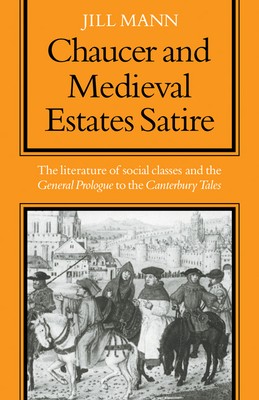
- We will send in 10–14 business days.
- Author: Mann
- Publisher: Cambridge University Press
- ISBN-10: 0521097959
- ISBN-13: 9780521097956
- Format: 14 x 21.6 x 2 cm, softcover
- Language: English
- SAVE -10% with code: EXTRA
Reviews
Description
This book is an attempt to discover the origins and significance of the General Prologue-to the Canterbury Tales. The interest of such an inquiry is many-sided. On the one hand, it throws light on the question of whether `life' or 'literature' was Chaucer's model in this work, on the relationship between Chaucer's twenty-odd pilgrims and the structure of medieval society, and on the role of their `estate' in determining the elements of which Chaucer composes their portraits. On the other hand, it makes suggestions about the ways in which Chaucer convinces us of the individuality of his pilgrims, about the nature of his irony, and the kind of moral standards implicit in the Prologue. This book suggests that Chaucer is ironically substituting for the traditional moral view of social structure a vision of a world where morality becomes as specialised to the individual as his work-life.
EXTRA 10 % discount with code: EXTRA
The promotion ends in 17d.21:30:08
The discount code is valid when purchasing from 10 €. Discounts do not stack.
- Author: Mann
- Publisher: Cambridge University Press
- ISBN-10: 0521097959
- ISBN-13: 9780521097956
- Format: 14 x 21.6 x 2 cm, softcover
- Language: English English
This book is an attempt to discover the origins and significance of the General Prologue-to the Canterbury Tales. The interest of such an inquiry is many-sided. On the one hand, it throws light on the question of whether `life' or 'literature' was Chaucer's model in this work, on the relationship between Chaucer's twenty-odd pilgrims and the structure of medieval society, and on the role of their `estate' in determining the elements of which Chaucer composes their portraits. On the other hand, it makes suggestions about the ways in which Chaucer convinces us of the individuality of his pilgrims, about the nature of his irony, and the kind of moral standards implicit in the Prologue. This book suggests that Chaucer is ironically substituting for the traditional moral view of social structure a vision of a world where morality becomes as specialised to the individual as his work-life.


Reviews